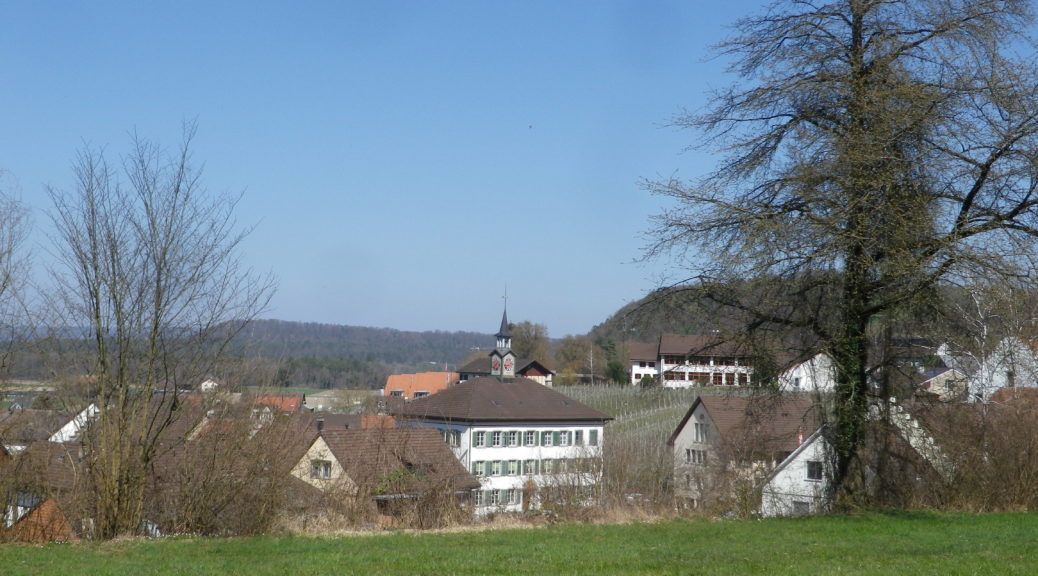Zurich, Swiss financial capital with a major international airport and European travel hub, was not far away, as the map clearly showed. The occasional aircraft loomed overhead as a reminder. But otherwise, this corner of Switzerland was rural, peaceful and green – great characteristics for any hiking trail.
The Worrenberg Weinwanderweg trail route highlighted the vineyards and wines of three small villages. All villages were in the Canton of Zurich, but they were closer to Schaffhausen, the famous city of the Rheinfalls on the Rhine River. The high-point of the trail, literally and figuratively speaking, was the vineyard area known as the Worrenberg, a south-facing slope of sufficient steepness to make it ideal for planting vines in this area.
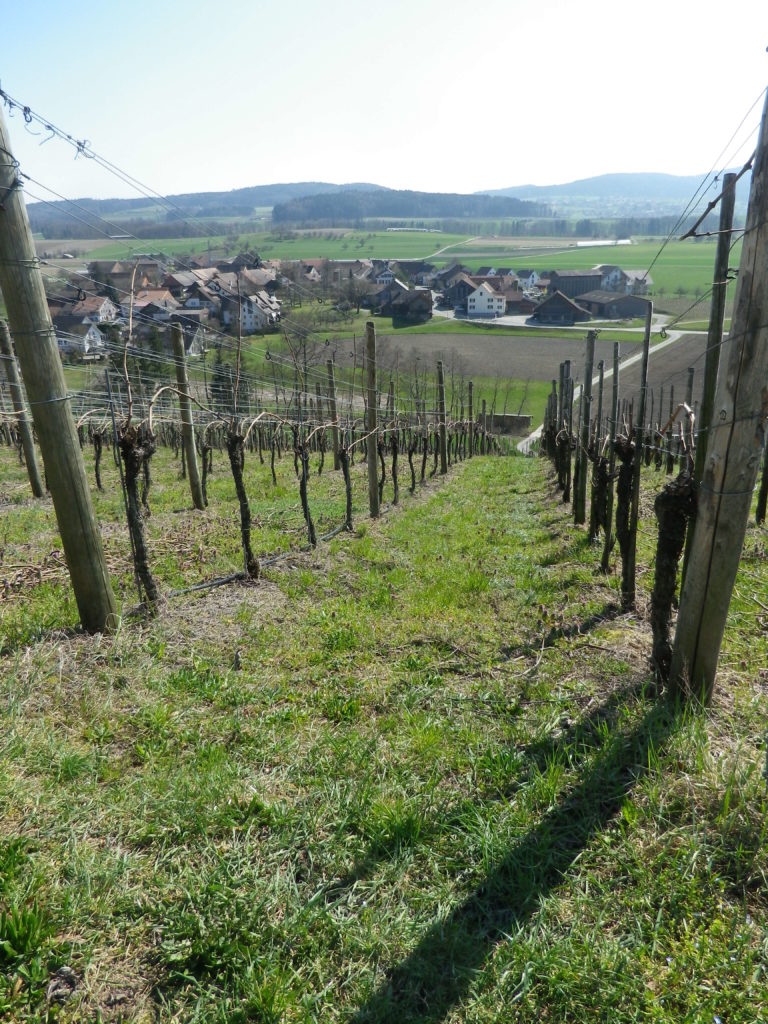
Zurich comes within what is known as the Deutsche Schweiz (German Switzerland), that part of Switzerland using German as its principle language. The Deutsche Schweiz has several different wine appellations, and in the region of Zurich, there is the Zuercher Weinland, a wine district not far from the wine region of Thurgau, centering around the Thur River, with the Rhine River to the west. It is a hilly region, not a mountainous one. Hence this short trail is an easy trail for families.
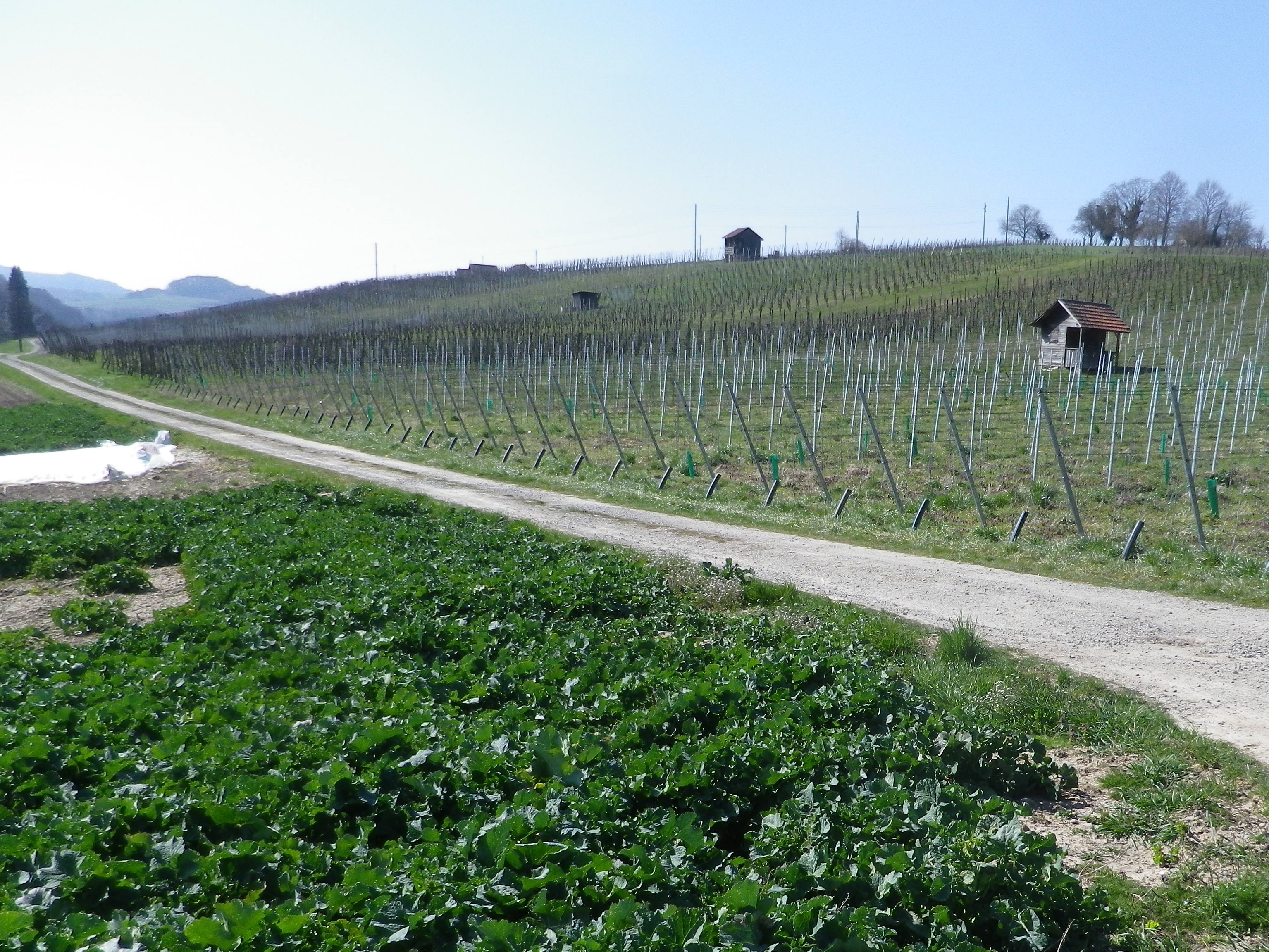
I began in the village of Berg am Irchel, which refers to the higher elevation south of the town. While there were a couple of wineries and a couple of taverns, it was difficult to see how people earned their livings. As I hiked along a couple of lanes, I passed a small “schloss”, a “palace” in name only, and soon entered the town’s small vineyard area.
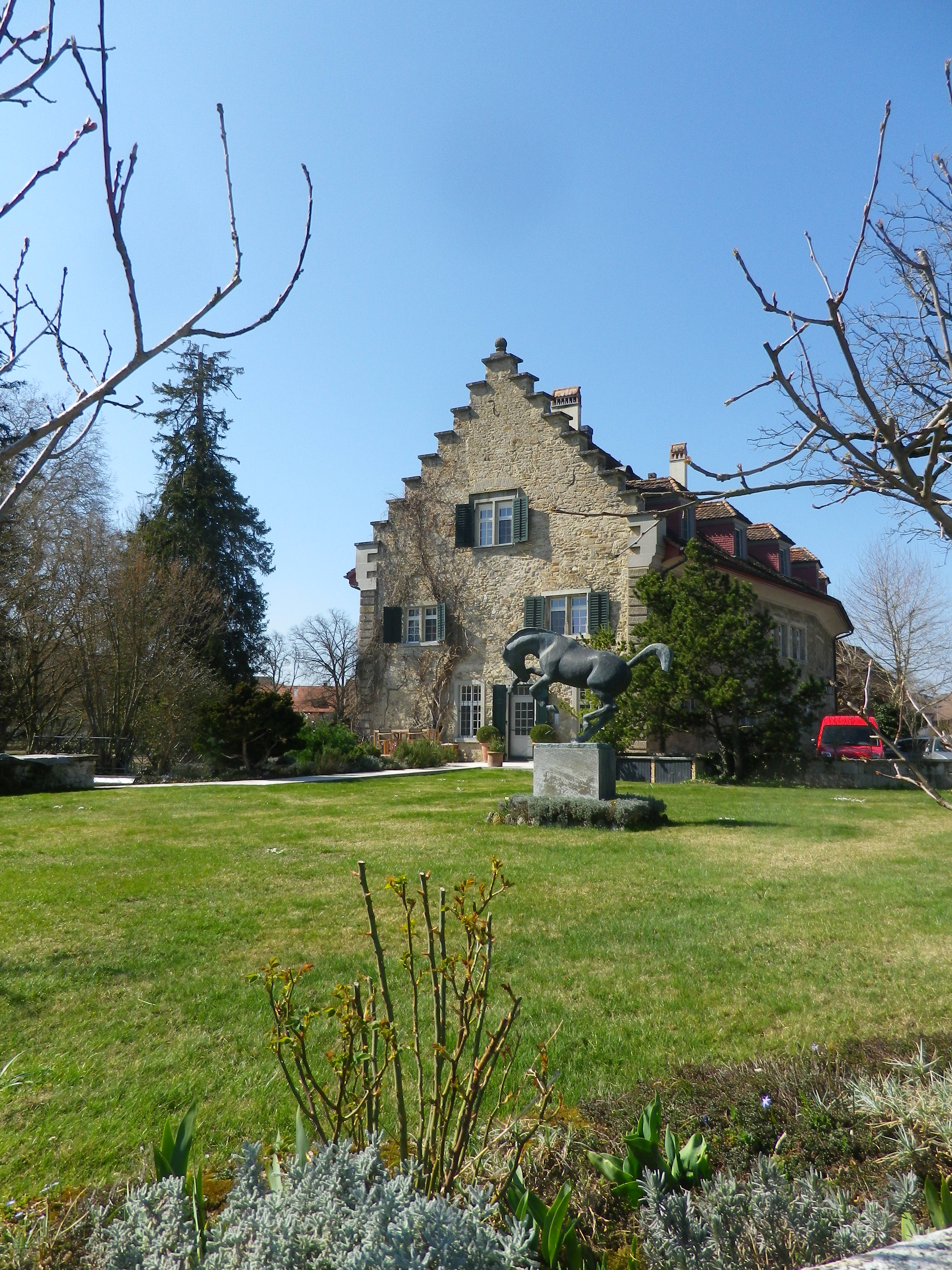
Once out of the vineyard area, the trail followed along a creek, shaded by old trees. The path led to Flaach, the second of the three villages, and the largest with almost 1300 residents. Nonetheless, I did not see a living soul as I meandered across the main street.
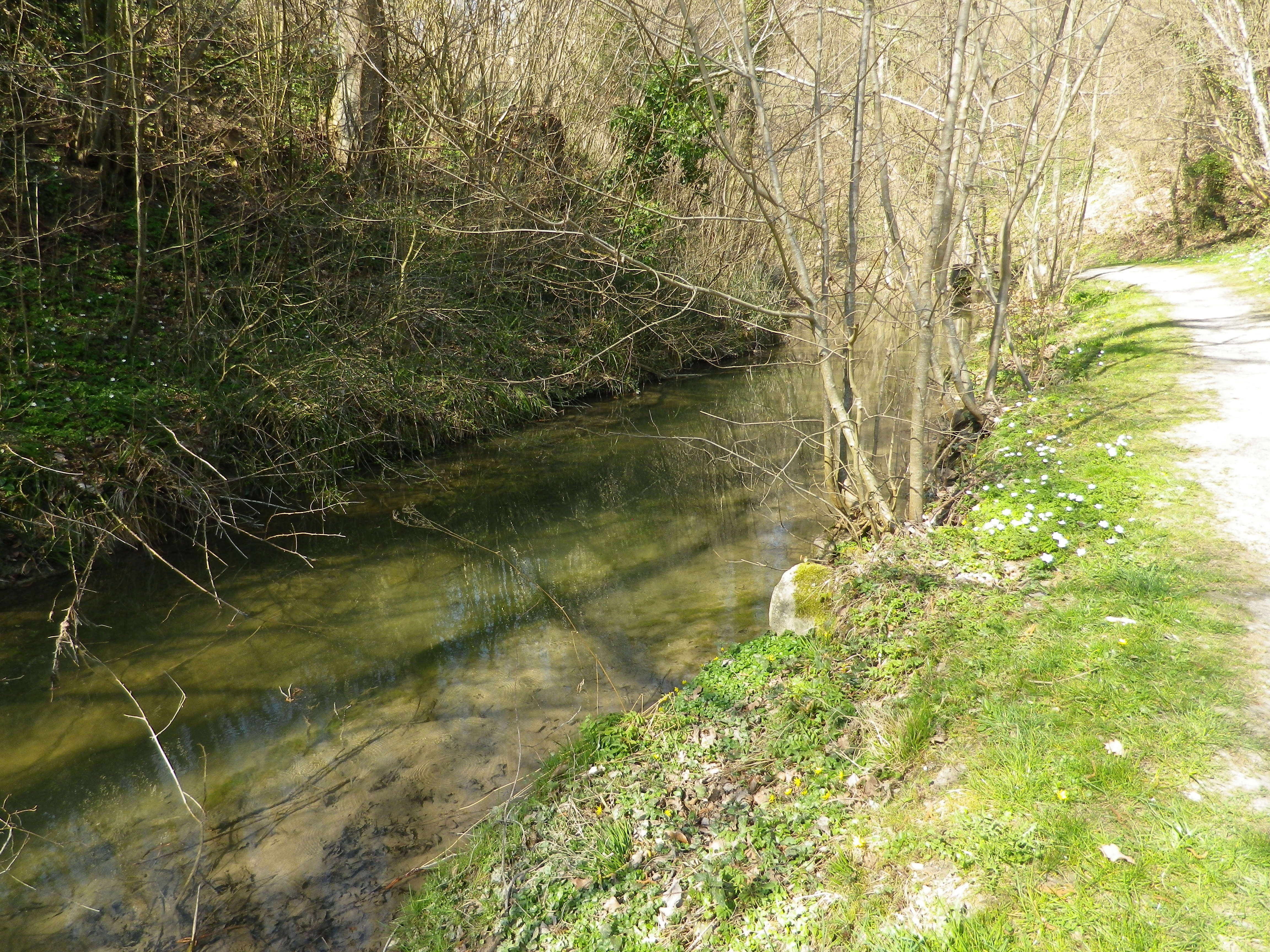
Leaving Flaach, winding up the side of the Worrenberg, were signs that provided information about viticulture and viniculture. The Worrenberg is the largest vineyard area in this district of the Zurich appellation, and several regional vintners had parcels here. A few vintner huts lined the way, including the one associated with the region’s largest winery: the Staatskellerei Zurich. Here and there, interesting perspectives on the villages and surrounding countryside appeared, to include the third village: Volken.
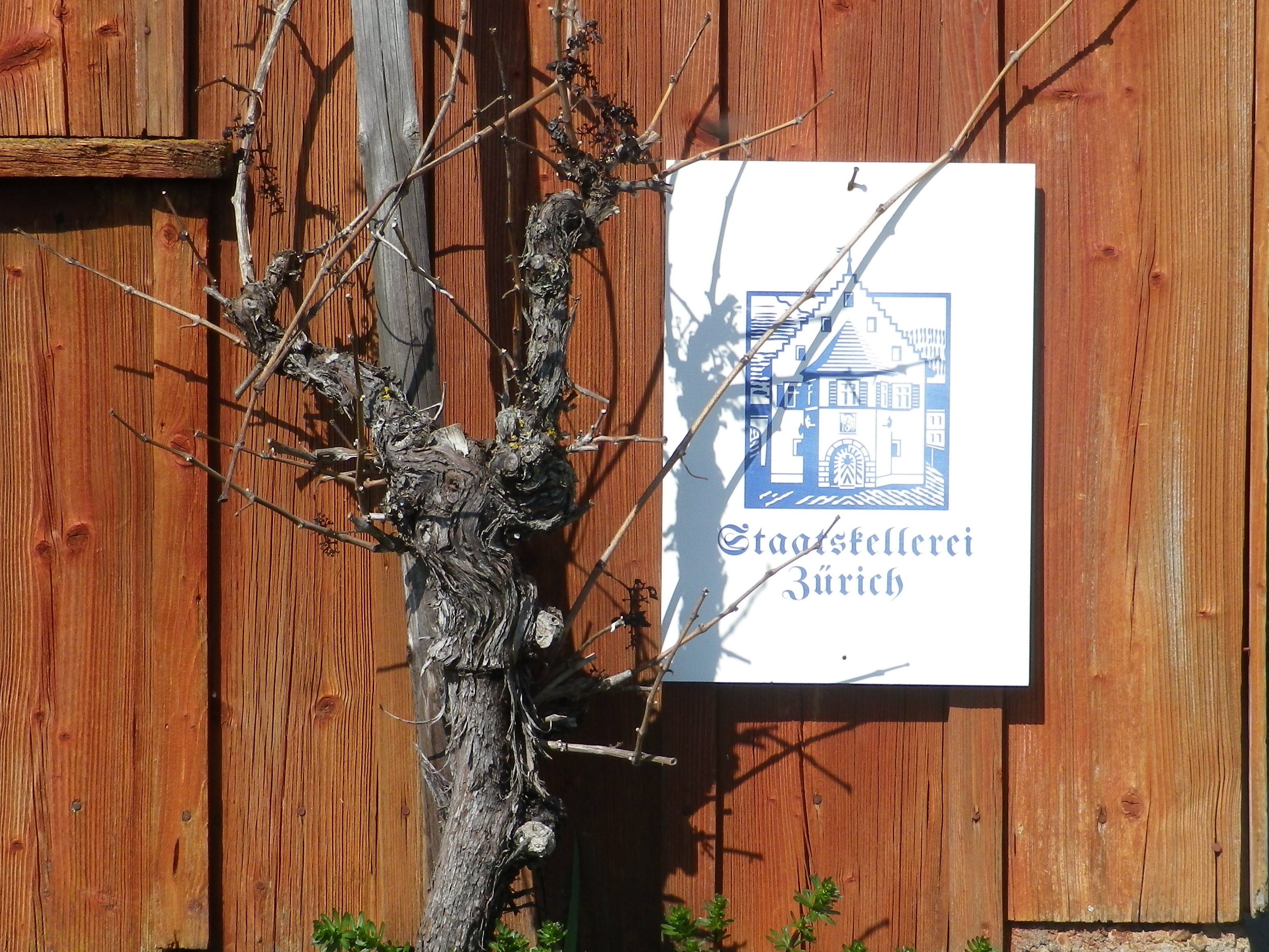
Soon I was walking along the deserted streets of Volken, past farmhouses and tidy Swiss residences. The center of town held a tavern, the Wirtschaft zur Post (closed), opposite a tiny grocery store conjoined with the Post Office. The warm greeting of the woman attending the store was enthusiastic and heartfelt. I imagine not many “foreigners”, let along locals, come in. But tiny or not, the store had a relatively large wine section, which luckily included local wines. And the one person I saw that day was an enthusiastic booster of the local wine industry. As she helped me choose the best selection of wines from local vintners, I realized that even when you think you are in barely inhabited countryside, you can always find somebody willing to talk about wine.
